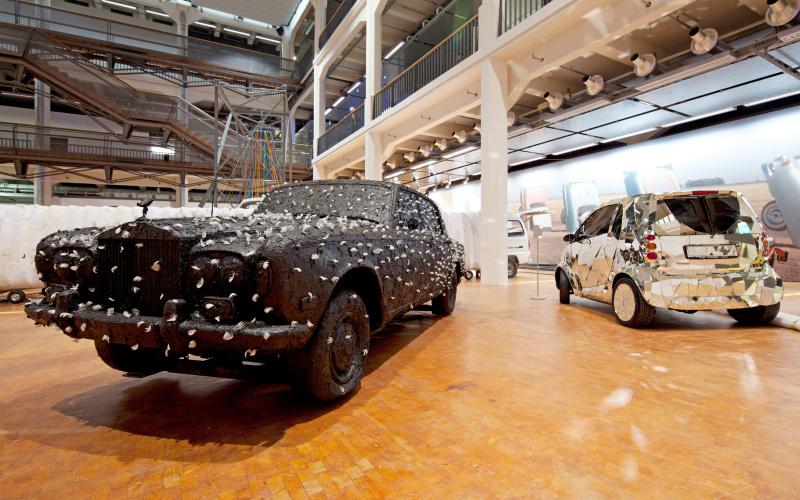- Exhibition
From Hertz to Mobile
Sat, June 18, 2011 – Sun, January 08, 2012
- Location
- ZKM | Media Museum, 1st Floor
The first phase in the industrialization of our society was marked by physical mobility, namely, by the material overcoming of spatial and temporal distance. This individual and collective means of transportation was primarily concerned with the conveyance of goods and persons.
The birth of virtual mobility likewise dates back to the industrial age, albeit that it first reached its temporary peak as late as the postindustrial era. The decisive turning point in the transition from physical to virtual mobility was the separation between messenger (body) and message (sign). Traveling signs, bodiless messages, are the insignia of virtual mobility. In this respect, virtual mobility is not only a continuation and extension of physical mobility: ideally, the former should make the latter superfluous.
For this reason, in conjunction with the artistic interpretations of the automobile the exhibition »Car Culture. Media of Mobility« presents, the technical developments which first made possible the mobility of information will also be presented. The technical history of radio technology »from Hertz to Mobile« can be viewed − until January 8th − on the first floor. Until today, the successful radio experiments for the transfer of electromagnetic waves as carried out by Heinrich Hertz at the Technical University of Karlsruhe, in 1886 are considered the nascence of this development. The road, originating in these experiments, through to the installments of cellular mobile radio networks and mobile telephones of the present-day has been long. Both developments are intimately connected with one another, and both originated here in Baden.
Imprint
- Curator
Team
Martin Häberle (technical project management)
Katrin Heitlinger (project management)
Bernhard Serexhe (project management)
